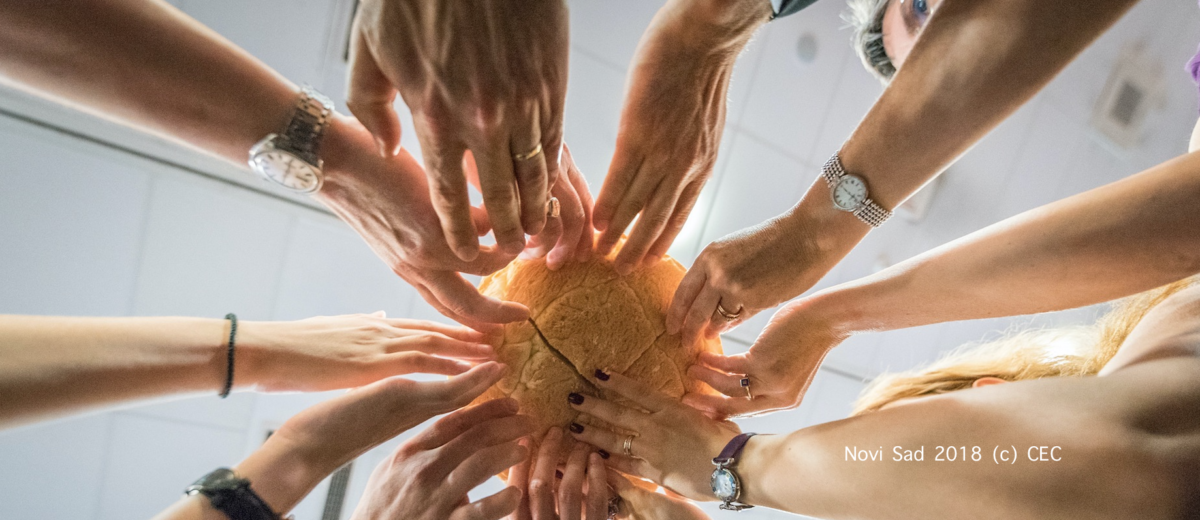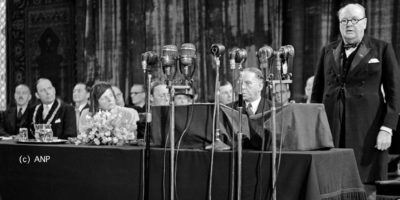In Holland they used to say: One Dutchman, a theologian, two Dutchmen, a congregation, three Dutchmen, a split. Optimists added: Four Dutchmen, a revival.
Over the four decades I have lived in the Netherlands, much has changed. Just how much I discovered this past week when Romkje and I participated in a National Christian Forum retreat with over fifty church leaders; from Catholic, Reformed, Orthodox, Lutheran, Baptist, Brethren, Moravian, Pentecostal, Quaker, migrant and other free church backgrounds.
The forum is a national expression of the Global Christian Forum which has emerged since the year 2000 for leaders of diverse churches, organisations and traditions to meet on an equal basis, to foster mutual respect and to address common challenges together.
In the Netherlands, the forum has been held now for several years with roughly equal representation from traditional and new churches. A spirit of mutual respect and acceptance was evident. Stories were shared of forgiveness having been asked for and spoken out between Reformed and Pentecostal leaders in recent years.
Titles and clerical gowns were left at the door as everyone related on first-name terms as equals. And equals we were as we knelt in humility and worship before a cross, a crucifix even, a permanent fixture on the wall of the monastic conference centre where we met. As brothers and sisters, followers of Jesus, fellow pilgrims, members of the same family of God.
Some twenty-five years had passed since I had been involved in church leadership gatherings in Holland, I realised, before my new YWAM Europe leadership role refocused my attention. Back in the ’80’s, YWAM had been instrumental in bringing together annually up to 600 Dutch leaders of evangelical, charismatic and pentecostal churches, and in starting gatherings of mainstream ministers open to the work of the Holy Spirit. But this forum was much broader.
Convergence
The onslaught of secularisation and shrinking church membership had meanwhile made leaders from different traditions aware that what they had in common was greater than what separated them. Here was a new depth of openness and acceptance. Was there ever before such convergence in a land where not only did Protestants split from Catholics, but Arminians split from Calvinists, conservatives from liberals, and where for centuries, Catholic, Lutheran and Mennonite churches had been tolerated only if they didn’t look like a church from the outside?
Not that we all agreed with each other. Clearly we brought different perspectives to the table. We came from different starting points with different histories. But we were committed to agreeing to disagree. We were there to listen to each other’s hearts, to understand what the other believed and had experienced. That meant taking time in small groups to share each other’s journeys.
The chosen theme was ‘church and kingdom’, and it was suggested we share our experiences of the tensions between these two concepts. Soon it became clear that we brought a wide range of understandings to the discussion. The one warned about being too preoccupied with the ‘kingdom’ as if it was something we could usher in ourselves. Look at how the church got sidetracked by the campaign against cruise missiles in the early ’80’s, it was argued; ‘Kingdom’ then became ideology.
Paradox
The other asked, did Jesus ever tell us to ‘seek his church first’? Were we not supposed to seek God’s kingdom first? Which begged the question: what do we mean by ‘God’s kingdom’? Something in the hereafter? or something already here and now? or something ‘already but not yet’? Could we not define God’s Kingdom from the Lord’s Prayer, that it is where God’s will is being done? … in every sphere of life: personal lives, family lives, communities, schools, hospitals, businesses,…
Which in turn raised the paradox that Jesus, who loved the church, gave himself for her and is returning for her, actually said very little about the church in the gospels. He majored instead on the kingdom: as good news, in the opening of his ministry; as something we were to help usher in through prayer, as in the Lord’s Prayer; as the subject of most of the parables; as good news to be shared with all nations, as in the Great Commission, and as the subject of Jesus’ last instructions to the disciples after his resurrection.
Some were very comfortable talking about the Kingdom in these terms. Two participants had come directly from the Conference of European Churches gathering in Novi Sad, Serbia, exploring the meaning of ‘witness, justice and hospitality’ in the context of Europe’s challenges today.
Others confessed they were in foreign territory talking outside of the church. One pentecostal leader told me he was so focused on the local church that he had never really thought about God’s purposes for Europe. We agreed to begin a dialogue.
Till next week,



